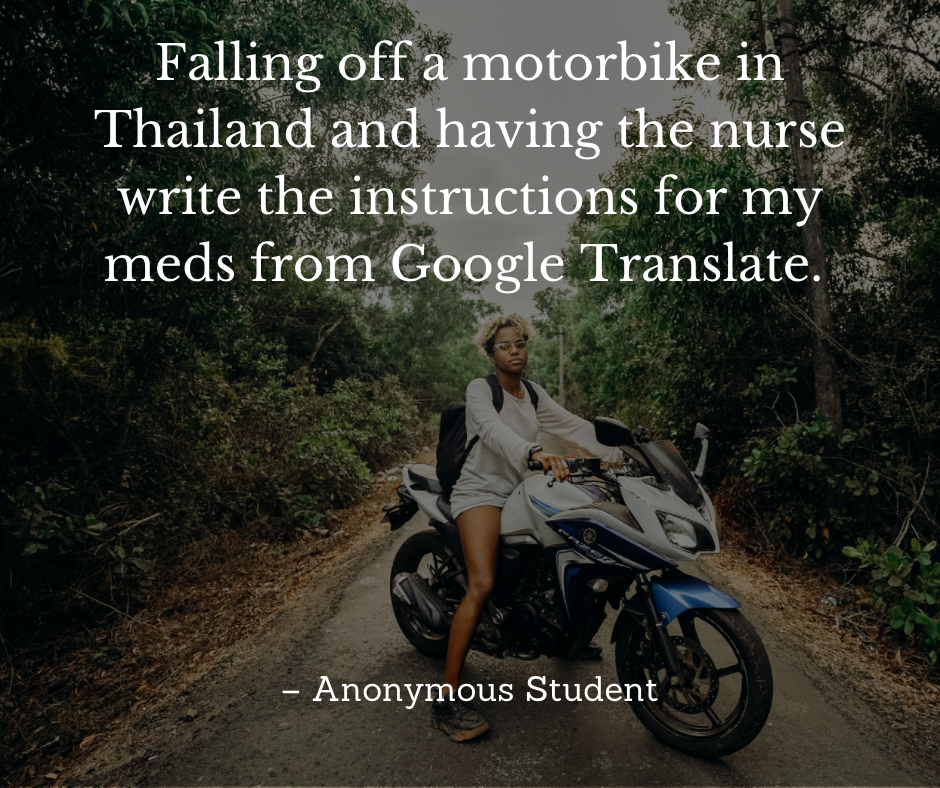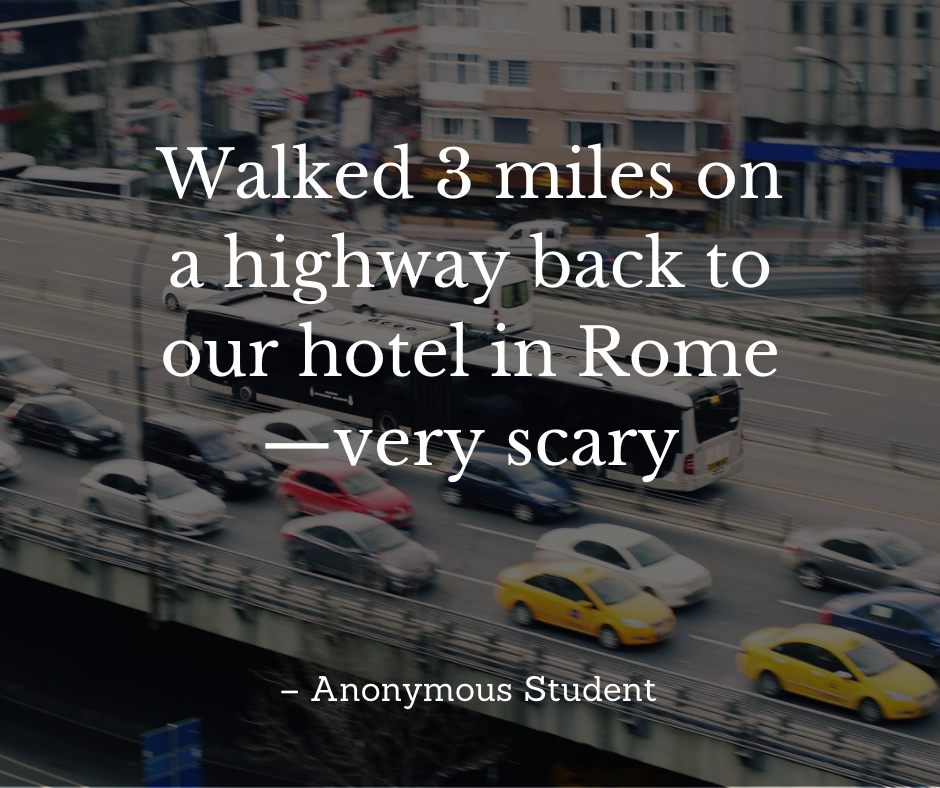Young Adult Travelers:
High risk tolerance ✅
Eager for adventure ✅
Lack of situational awareness ✅



Think of your best travel story. Think of your riskiest.
Do they align?
For the majority of young adult travelers, they do. Over 70% of young adult travelers do not submit key travel data that is needed to keep themselves safe and their companies/schools legally compliant while on work/school-sponsored travel programs. This means the organizations own the risk but are flying blind.




The lack of compliance with risk mitigation procedures and failure to report travel data by employees on bleisure trips can lead to increased risks and higher costs for employers.
"Bleisure" travel is an increasing trend where employees add a few extra days of vacation to their business trips. While this may sound appealing, it can present a number of challenges for employers, particularly when it comes to Duty of Care and Duty of Loyalty.
Duty of care refers to the legal and ethical obligation of an employer to take reasonable steps to protect the health and safety of their employees while they are on a business trip. This includes assessing risks, providing appropriate training, and ensuring that employees have the necessary information and resources to stay safe while traveling.
Duty of loyalty, on the other hand, refers to the expectation that employees will act in the best interests of their employer while on a business trip, even if they are also engaging in leisure activities. This includes complying with company policies and procedures, such as risk mitigation procedures, and reporting their travel plans and itineraries to their employer.
When employees don't comply with these expectations, it can lead to increased risks and higher costs for the employer. Employers may be held liable or face reputation damage if an employee is injured or becomes ill due to lack of compliance.
This problem is especially relevant today with the rise of digital nomads, remote workers, and international students, who are more likely to travel for both business and leisure purposes. These groups of travelers may not have the same level of awareness or understanding of the risks associated with bleisure travel, and may not even be aware of their surroundings, to begin with.
Don't let bleisure travel be a pain in the "asset", learn how OffWeGo solves this problem through proven behavioral science and gamification techniques to incentivize traveler engagement.
We'll be in touch shortly!

OffWeGo is currently in a private Beta. Interestde being included? Sign up below!
